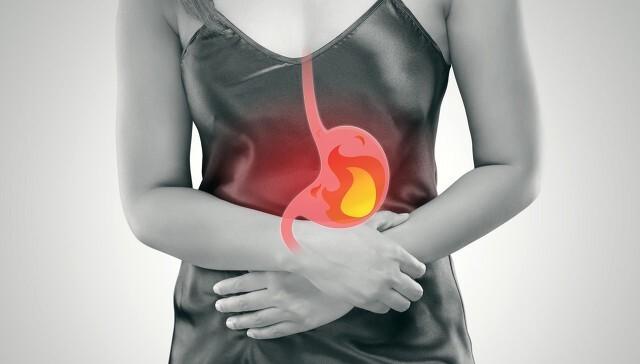A friend left a message to Huazi, every night will always feel heartburn, acid reflux, sometimes a violent cough, began to think that it was a cold, took a few days of cold medicine is not good, went to the hospital for examination, the result is suffering from reflux esophagitis. He asked Huazi what to do, what should I pay attention to when treating reflux esophagitis?
Huazi said reflux esophagitis has the same characteristics as chronic diseases, manifests as chronic, progressive, and may lead to complications, and also has a higher recurrence rate after receiving treatment. Long-term maintenance therapy is usually required to control the condition.

First, why does reflux esophagitis occur?
Reflux esophagitis refers to the reflux of gastric contents into the esophagus, staying in the esophagus for a long time, and the gastric contents contain attacking factors such as gastric acid, pepsin, and bile acid, which will cause self-digestion and damage to the mucosa of the esophagus, and cause symptoms such as acid reflux, heartburn, and retrosternal pain.
Stomach acid has a certain degree of volatility, and when the acid mist crosses the throat, it will irritate the respiratory tract and cause a severe and irritating cough.
The cause of reflux esophagitis is motor dysfunction of the esophagus, stomach and other muscles, overeating, diabetes, high-fat diet, hiatal hernia and other factors, which are common triggers.
Second, life intervention of reflux esophagitis
Life intervention is the basis for the treatment of reflux esophagitis, and those with mild symptoms can be effectively alleviated through life intervention.
1. Weight loss: If the patient is overweight, weight loss can effectively reduce stomach acid reflux.
2. Quit smoking and alcohol: cigarettes and alcohol will stimulate the gastric mucosa and aggravate the symptoms of gastroesophageal reflux.
3. Avoid night food: reflux esophagitis is easy to occur at night, so do not eat 3 hours before going to bed, and do not eat too full.
4. Raise the head of the bed: the flat lying position is easy to induce acid reflux, raise the head of the bed, or raise the pillow to raise the head and neck by about 10 cm, which can alleviate the symptoms.
5. Avoid stimulating diets: Avoid eating chocolate, coffee, spicy and other irritating diets and high-fat foods.
Third, drug treatment requires long-term maintenance
Drug therapy for reflux esophagitis, mainly with acid-suppressing drugs. Commonly used are proton pump inhibitors (various "pazoles"), histamine H2 receptor antagonists (various "tidins"), and novel potassium-ion competitive acid blockers (P-CAB). It can inhibit gastric acid production, alleviate symptoms, and promote the recovery of damage to the mucosa of the esophagus.
For reflux esophagitis, acid suppressed therapy usually takes 8 weeks initially (4 weeks with P-CAB). Within 8 weeks, inflammation of the mucosa of most people's esophagus can heal. However, studies have shown that reflux esophagitis, which has only undergone initial treatment, has a 90% recurrence rate within 6 months of discontinuation. After the initial treatment, if maintenance therapy is continued for about 6 months, the recurrence rate is 28%.
Recurrent reflux esophagitis not only increases pain, but can also cause complications such as esophageal ulcers, esophageal stenosis, bleeding from the esophagus, and even esophageal cancer. So now for drug treatment of reflux gastroesophagitis, most doctors tend to do an initial treatment of 2 months, followed by maintenance therapy at a low dose until 6 months.
Within 6 months, even if there are no symptoms, it is necessary to adhere to low doses of acid suppressive therapy. to reduce disease recurrence and may reduce the risk of esophageal cancer. After 6 months, it is changed to on-demand medication or intermittent medication according to the actual situation. Severe reflux esophagitis can be treated with endoscopic or surgical procedures.
To sum up, reflux esophagitis has similar characteristics to chronic diseases and requires long-term continuous treatment to effectively control symptoms. Acid-suppressing drugs are mainly used in treatment, and initial treatment plus maintenance therapy is a common treatment. Specific drug selection needs to be carried out under the guidance of a doctor. If you have any questions about medication, consult your doctor or pharmacist. I am a pharmacist Huazi, welcome to follow me and share more health knowledge.